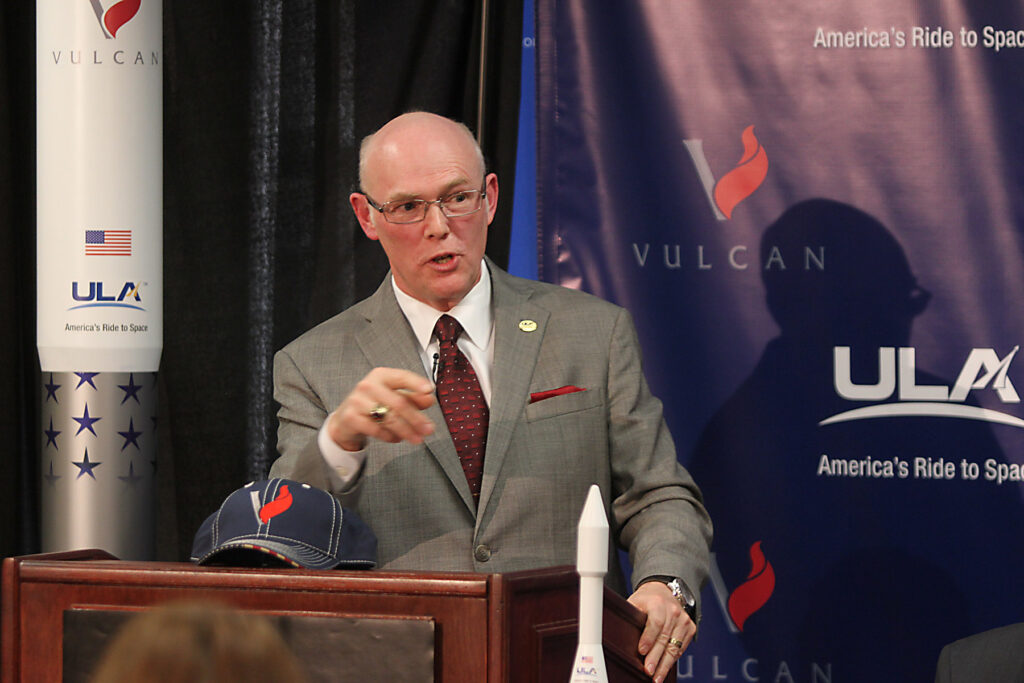ULA CEO Thinks RD-180 Waiver Likely; Gap Of 5 Engines Between House, Senate
Posted on
WASHINGTON: The still-newish CEO of the United Launch Alliance, Tory Bruno, faces tough questions from his board of directors. He faces tough questions from the House and the Senate about his use of Russian-built RD-180 rocket engines. But his biggest short-term problem — being allowed to use enough RD-180 engines to get his company from here to initial deployment in 2017 of the new Vulcan launch system it plans to build — may have an answer.
I asked Bruno if he thought he had a strong case to obtain a Defense Department waiver to allow use of all the RD-180s has under contract but which last year’s National Defense Authorization Act currently bars him from using.
Air Force Secretary Deborah Lee James recently told the Senate Armed Services strategic forces subcommittee that the alternative rocket — the Delta IV — is so expensive that she would prefer not to use it as an alternative to the Atlas V. The law on assured access to space requires that we possess:
“The availability of at least two space launch vehicles (or families of space launch vehicles) capable of delivering into space any payload designated by the Secretary of Defense or the Director of National Intelligence as a national security payload”
And Elon Musk can’t yet provide the heavy lift needed to loft the biggest NRO or Air Force payloads into space.
So, what was Bruno’s answer? He noted that it’s the Air Force who would make the recommendation for a waiver: “I think she could make a very strong argument based on what she has said” for a waiver for ULA to use the RD-180.
That would be really good news for ULA because of those other uncertainties. As he and others in the space industry, and their colleagues in the Air Force, have told Congress time and again, building a rocket reliable enough to trust with crucial and irreplaceable national security payloads.
Right now, ULA is allowed by law to use just five RD-180 engines. ULA says it needs to use at least 14 Russian engines. The restrictions were placed on them by Congress last year in response to Russia’s invasion of Ukraine and annexation of Crimea. The House version of the 2016 National Defense Authorization Act would let them use all 14. The Senate version, according to my colleague Warren Ferster at Space News, clears the use of no more than nine. Sen. John McCain has been adamant and outspoken in his opposition to allowing the use of more engines beyond the limits place in last year’s bill.
ULA’s new launch system, the Vulcan, won’t be certified to lift national security payloads until at least 2022. And that presumes all goes according to plan with a substantially new launch system built in roughly five years. Bruno faces tight restrictions on his actions right now. He confirmed at a lunch yesterday hosted by the Washington Space Business Roundtable that his board is only approving funding for work on the Vulcan quarter by financial quarter. That does not easily allow for the sort of substantial and committed work likely to ensure the Vulcan’s successful development, especially in a tight time frame.
Subscribe to our newsletter
Promotions, new products and sales. Directly to your inbox.

